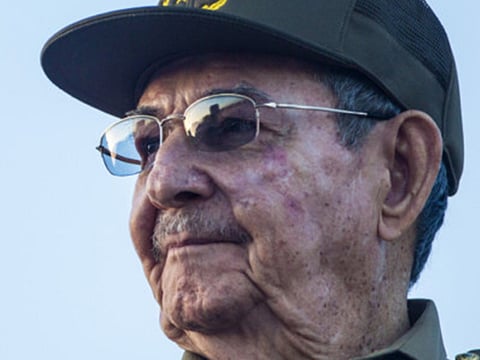Can Trump and Castro make a deal?
The agreements that the new US administration will inherit serve the interests of both, Washington as well as Havana

Cuba operates as if it had two parties, President Raul Castro joked in his main report to the Seventh Congress of the Cuban Communist Party last April: “Fidel leads one and I, the other.”
It was more than just a joke. Fidel Castro, Raul Castro’s brother and the former president, had criticised United States President Barack Obama’s visit to Havana a month earlier in official publications — the first public split between the brothers on an issue of such importance. Obama’s Cuba policy change, announced in December 2014, drove a wedge through the Cuban leadership, making manifest the differences between government hardliners and reformers. Raul’s senior team has been negotiating and signing many practical agreements to alter various aspects of Cuban-American relations.
Fidel Castro now is dead; the ossified regime he nurtured is vanishing as well. Raul has enacted domestic and foreign policy changes that happen to be in line with key foreign policy priorities of the American President-elect, Donald Trump, and at the same time open up Cuba’s economy and society. A deal-making Trump presidency will find a deal-honouring Raul presidency. The agreements that the Trump administration will inherit, reached under Trump’s three predecessors, serve well both the interests of the US and Cuba as well as the presumed Trump presidential agenda on immigration and trade. Reversing or scaling back such agreements, as Trump has threatened to do, will make it more difficult for Trump to fulfil that agenda.
Last year, more than half a million visitors from the US set foot in Cuba. Earlier in the Obama presidency, the US government had liberalised the rules on sending money transfers to Cuba; and much of it financed the re-emergence of a Cuban private business sector. The number of small-business licences now exceeds a half-million in a country of 11.2 million people. Money transfers fund a Cuban civil society independent of the state for the first time in a half-century.
Cuba and the US have long cooperated on security matters and immigration. There is military coordination around the perimeter of the US Navy base near Guantanamo Bay. Cuba patrols its ports to prohibit the unauthorised seizure of boats or rafts; at its airports, it monitors those about to board, checking for valid visas. US Coast Guard cutters intercept undocumented migrants in the Straits of Florida and return them to Cuba. The two countries have informally combined efforts on drug traffic interdiction since the 1990s and this was formalised last July; Cuba provides an effective barrier against drug traffic into the US.
Suppose you are the US president-elect. What’s not to like? Cuba long ago adopted the Trump-preferred migration policy: Seek to stop the departure and accept the return of undocumented migrants. Cuba cooperates with the US Coast Guard and the base near Guantanamo to counteract violence and crime.
Still, while economic agreements emphasise the two countries’ equality, some of the deals couldn’t be more lopsided. Only American airlines fly between the two countries; Cubana de Aviacion does not. And since late 2002, Cuba has purchased about $5.3 billion (Dh19.49 billion) worth of US agricultural products, paying cash, while exporting almost no goods to the US. On delicate issues, former US president George W. Bush and Fidel, and later Obama and Raul, developed ways of agreeing substantively while publicly denying any negotiation had taken place. That diplomatic ruse worked. In 2002, the Cubans induced the Bush administration to begin exporting American agricultural products; each side made it known that these were unilateral, independent and sovereign decisions. In December 2012, the US and Cuba did not trade spies; rather, each made unilateral, independent and sovereign decisions to release some of the other’s prisoners.
Slowly, US-Cuba relations got better. That serves Cubans who may travel more easily, receive friends, rent space through Airbnb and get working capital through money transfers to establish private businesses and fund an independent civil society. That serves Americans who benefit from freer travel and cooperation on issues such as migration, crime and drug trafficking. What next? Rely on independent, unilateral and sovereign Cuban decisions to foster change.
Here’s how Raul’s joke ended at the April party congress: “Fidel will certainly say, ‘I want to lead the Communist Party’, and I will say, ‘OK, I’ll lead the other one, the name does not matter’.” If you are a Cuban hardliner, that joke is terrifying. President Raul Castro is prepared to open the gateway to something different, less dogmatic, whose name neither he nor we know. But we know what it is not. It is not called “Communist”.
— New York Times News Service
Jorge I. Dominguez is a professor of Government at Harvard University.
Sign up for the Daily Briefing
Get the latest news and updates straight to your inbox



